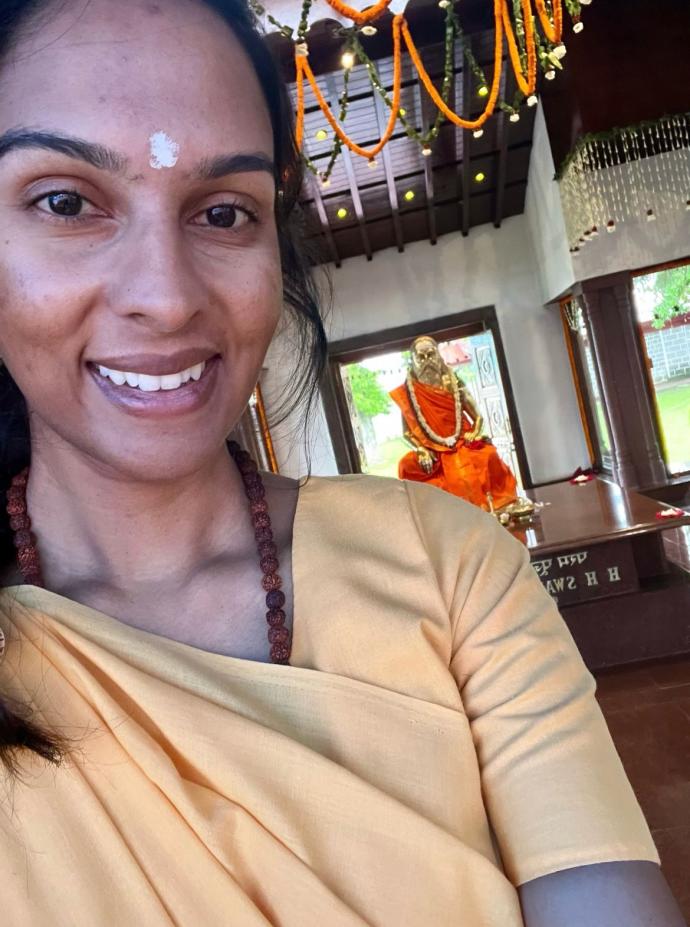Contribute
| Fasting Practices In The Indian Diaspora |
Dr. Kumar Mahabir & Shalima Mohommed
10/11/2025
Fasting practices in the Indian Diaspora
Celebrated at this time, Divali - the Hindu Festival of Lights - is a time of fasting. Fasting is a deeply-rooted spiritual and cultural practice in the Indian diaspora, observed across various religious traditions. Hindus concluded fasting for Maha Shiva-ratri, a night of devotion to Lord Shiva, during which many Hindus abstained from meat and alcohol, or consumed only fruits and milk. Muslims in the diaspora fast for Ramadan, refraining from food and drink from dawn to sunset as an act of faith, discipline and self-purification. Christians observe Lent, a 40-day period of fasting, prayer and penance leading up to Easter. Despite differences in religious motivations and methods, fasting across these traditions serves as a means of spiritual renewal, self-discipline and community bonding.
The following are excerpts from an Indo-Caribbean Cultural Centre (ICC) Thought Leaders’ Forum (02/03/25). The ZOOM program was chaired by Shakira Mohommed and moderated by Shalima Mohammed, both from Trinidad. There were (4) speakers in the program. The topic was “Fasting practices in the Indian Diaspora.” See the unedited recording of the program: https://www.youtube.com/@dmahab/streams.
BRNI KRITIKA CHAITANYA (of Trinidad, originally from Canada) said: “Fasting in Vedanta is seen as a means to purify the mind (chitta suddhi), strengthen self-discipline (tapas), detach from bodily identification, and focus on inner awareness. Fasting, when done with sincere devotion, right intention (bhava) and proper understanding, then, it is meaningful and beneficial and valuable to ones’ evolution. There are many controversies surrounding women in Hinduism, but we are practicing from the highest standpoint - Vedanta. Genders have their place and role, but when it comes to reaching the goal of Brahman, then gender does not match - the intention, effort and practices do!”
SULEIMAN BULBULIA (of Barbados) said: “The universal aspect of Ramadhan allows for cultural diversity in the practical aspects of fulfilling the faith requirements. Muslims in the Indian diaspora in Barbados maintain many cultural practices from India in their observance of Ramdhan. Ramdhan is a sacred and holy month. It is a month of prayer, and charity but most importantly fasting. It is a month of fasting from anything that is evil in thought, in word and deed. While you are fasting from food and drink, you are also staying away from anything that does not fulfil the commands of God. At the end of it, you are expected to become a better person. While it is spiritual, fasting is also physical. Fasting helps the body regulate itself; rather than overeating, it helps to bring your body back into equilibrium.”
PUNDIT ADESH MARAJ (of Trinidad) said: “Every religion has a fast. In Hinduism, how people fast vary from place to place. E.g. Pitra Paksh (period where we reflect on our ancestors); some families have a set day in the week when they fast, usually determined by tradition; Kaamya karma (choosing to do pooja) fasting for 21 days prior and or for funerals where the family of the deceased undergoes a fast over a 12-13 day period. There are many misconceptions about fasting: example, fasting is about skipping meals. People believe they are fasting for religious merit. Fasting is seen as a punishment/atonement for sins. Or are they are fasting ‘to please God.’ So then why should you fast? Fasting is a control of the senses (i.e. self-discipline), particularly that sense of taste which, if uncontrolled, results in greed. Fasting is a practice to help reduce our dependency on external pleasures. Fasting is a tool/ mechanism that helps the devotee to look inwardly. Fasting is a form of tapasya which purifies the body and mind, in essence removing distractions. An outcome of fasting is greater mental focus, which leads us to spiritual growth.”
REHANA LALMAHOMED (of the Netherlands, originally from Suriname) said: “Fasting is one of the five pillars of Islam, and for a woman, it holds unique spiritual and practical aspects that shape their daily lives, especially during the month of Ramdhan. It is more than just avoiding food; it is an act of devotion, self-discipline and a way to get closer to Allah. Fasting encourages spiritual reflection and gratitude, increasing compassion for the less fortunate.
“For a woman, this experience is deeply rewarding and yet a challenging practice. Fasting is an obligatory act for all Muslims including women, unless they have special situations where they are exempt from fasting, i.e. being pregnant or sick, menstruation or post-natal bleeding, breast-feeding or where fasting might harm the mother or baby. The woman must make up the fasting days at a later time and are encouraged to engage in other acts of dua [prayer], charity and sharing, ensuring that they remain spiritually connected during the holy month. The balance between devotion and daily responsibilities is seen as a test of patience and endurance, further enhancing the spiritual rewards of fasting. Fasting encourages a time of reflection and renewal for women.”
You may also access this article through our web-site http://www.lokvani.com/



